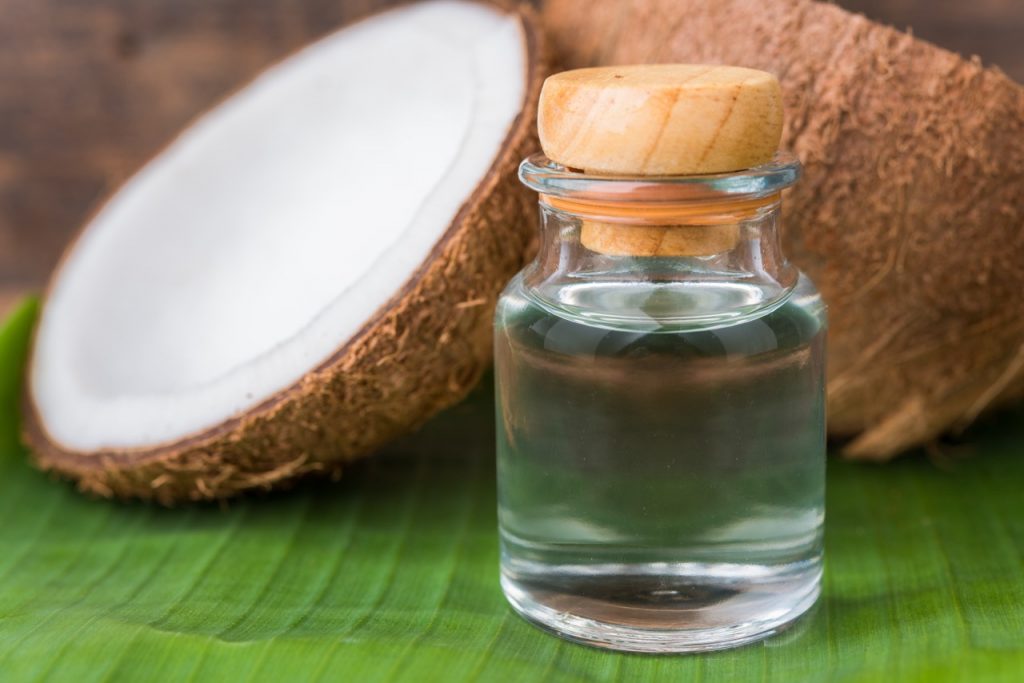Resource Library
Start Reading
Celebrities and influencers on social media extol oil pulling as a natural, effective way to whiten teeth and keep your mouth healthy. Their enthusiastic testimonials, accompanied by visually appealing videos, make it seem like an easy and affordable way to achieve a dazzling, Hollywood-style smile.
But is oil pulling for teeth everything TikTokers and YouTubers say it is? How, exactly, does it work? Does oil pulling whiten teeth and do everything else stars claim?
Dr. Mark Wolff, Dean of the University of Pennsylvania School of Dental Medicine, recently told Time magazine there’s “no real reason” oil pulling “would cause harm,” unless it took the place of standard, tried-and-true dental care. But has it “ever reversed periodontitis or gingivitis? The answer is no.”
Dr. Wolff also answered common questions about oil pulling in the video above. Watch it now, then read on for more details about this popular wellness trend.
Oil pulling for teeth is a practice rooted in Ayurvedic medicine, a system of traditional medicine that arose in India more than 3,000 years ago. Ayurvedic medicine holds that imbalances in consciousness cause disease. It encourages natural therapies for restoring balance.
Oil pulling is the act of swishing a tablespoon of oil around the mouth for some time, usually 15-20 minutes, before spitting it out. This mechanical swishing motion, explains Dr. Wolff, is what removes plaque, “the soft material that builds up on the outside of teeth.”
Traditionally, people used sesame due to its supposed therapeutic properties. Today, many people opt for coconut oil pulling, or such other oils as sunflower or olive oil. The practice has gained wider attention and popularity over the last decade in part, says Dr. Wolff, because “the many types of oils used [include] oils sold by companies for profit.”
 What Are the Benefits of Oil Pulling?
What Are the Benefits of Oil Pulling?Advocates claim several advantages of oil pulling. They say it detoxifies the mouth, reduces inflammation of the gums, prevents the progression of gum disease, eliminates bad breath, and whitens teeth.
Proponents also say oil pulling benefits extend beyond oral health. By eliminating toxins from the mouth, they claim, oil pulling supports the body’s natural detoxification processes, improving overall health and well-being.
Most evidence supporting these claims is anecdotal. No reliable scientific research has definitively confirmed any of these oil pulling benefits.
“There’s some evidence it may reduce [plaque buildup] on the outside of your teeth,” says Dr. Wolff, but “tooth brushing does that also. If you spent 20 minutes brushing your teeth and flossing, you’d probably get them equally or better cleaned.”
 No immediate dangers of pulling coconut oil or similar oils are currently known. “Some patients complain about ongoing tingling,” says Dr. Wolff, “or they don’t like the taste, and brush immediately after to clean their mouths.” While some people may be allergic to components of the oils used, not many are.
No immediate dangers of pulling coconut oil or similar oils are currently known. “Some patients complain about ongoing tingling,” says Dr. Wolff, “or they don’t like the taste, and brush immediately after to clean their mouths.” While some people may be allergic to components of the oils used, not many are.
Swallowing small amounts of oil may lead to an upset stomach, nausea, or diarrhea. And the prolonged, repetitive swishing motion can strain the jaw and surrounding muscles, especially in individuals prone to teeth grinding (bruxism) or with preexisting temporomandibular joint (TMJ) issues.
As you should when considering any alternative medical practice, consult a healthcare professional if you are thinking about oil pulling.
 Some dentists do think oil pulling can be a beneficial addition to, but not a replacement for, conventional oral hygiene routines. Many, however, remain skeptical due to the general lack of scientific evidence supporting claims about the oral health benefits of oil pulling. The American Dental Association (ADA) does not recommend oil pulling.
Some dentists do think oil pulling can be a beneficial addition to, but not a replacement for, conventional oral hygiene routines. Many, however, remain skeptical due to the general lack of scientific evidence supporting claims about the oral health benefits of oil pulling. The American Dental Association (ADA) does not recommend oil pulling.
One study, in 2015, found oil pulling caused lipoid pneumonia—the accumulation of oil in the lungs—in two patients. Admittedly, such cases are rare. Some dentists also worry that oil pulling may lead to accidental ingestion of harmful bacteria pulled from the mouth.
Dr. Wolff says he doesn’t recommend oil pulling. “I don’t think it’s in all likelihood harmful,” he adds, “but if we could get people to really clean their teeth well once a day, I think we achieve the same outcome.”
If you’re looking for proven ways to achieve and maintain better oral health and a brighter smile, see the dental professionals at Penn Dental Family Practice. We’ll expertly assess your dental health and help you determine the best oral care routine for your needs.
Schedule your appointment online or call us at 215-898-PDFP (7337).